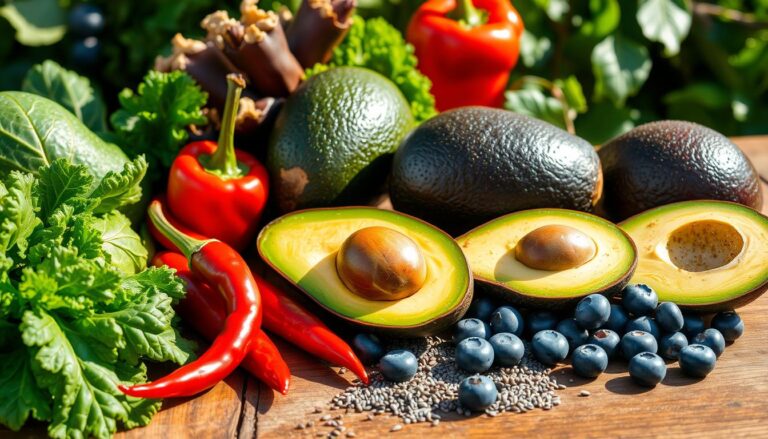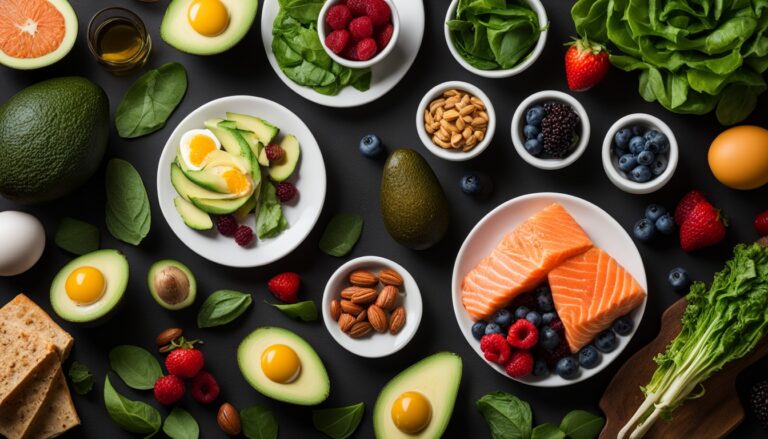Can a plant based diet truly be the cornerstone of effective weight loss and improved overall health?
Individuals who adopt diets rich in plant-based protein often experience lower rates of overweight and obesity compared to those consuming diets heavy in meat and refined foods.
Plant based patterns are characterized by lower fat and cholesterol levels promoting both weight loss and long term healthy weight maintenance. The high fiber and water content in whole plant foods enhance satiety while reducing caloric density allowing the body to reach its natural weight setpoint without the need for deprivation.
Key Takeaways
- Plant-based protein sources are powerful tools for weight management and overall health improvement.
- Diets rich in plant protein can lead to lower rates of overweight and obesity.
- Plant based patterns are lower in fat and cholesterol promoting weight loss and healthy weight maintenance.
- Incorporating more plant based proteins into your diet can help achieve and maintain a healthy weight.
- Understanding the relationship between plant protein consumption and chronic disease prevention can inform dietary choices for long-term health optimization.
Understanding Plant Based Protein An Overview
Understanding the nuances of plant based protein is crucial for those looking to adopt a healthier diet. Plant-based protein sources are diverse and offer a range of nutritional benefits.
As individuals consider switching to or incorporating more plant based options into their diets it’s essential to understand what defines plant-based protein and how it compares to animal protein.
What Defines Plant Based Protein
Plant based protein refers to protein derived from plants, including legumes grains nuts and seeds. These sources provide varying amounts of protein and are often complemented by other nutrients such as fiber vitamins and minerals.
Unlike animal protein, which is typically complete and contains all essential amino acids many plant proteins may lack one or more of these amino acids. However consuming a variety of plant based proteins can ensure that the body receives all necessary amino acids.
Plant vs. Animal Protein Key Differences
The primary differences between plant and animal protein lie in their nutritional profiles.
Animal proteins are generally considered complete proteins because they contain all essential amino acids necessary for human health.
In contrast many plant proteins are low in certain amino acids, although exceptions like soy and quinoa are complete proteins. Additionally, plant proteins are typically accompanied by fiber which is absent in animal proteins contributing to better satiety and digestive health.
Research has shown that while the protein digestibility of plant proteins ranges from 60-90% it is slightly lower than that of animal proteins which range from 90-99%. However this difference can be easily compensated for by consuming slightly more plant protein.
In terms of nutritional content,plant-based dietstend to be high in certain nutrients like fiber vitamins C and E and magnesium but may require careful planning to ensure adequate intake of nutrients like vitamin B12 and iron which are more readily available in animal products.
Overall incorporating a variety of plant based proteins into one’s diet can provide numerous health benefits including lower intake of saturated fats and higher intake of beneficial nutrients.
The Science Behind Plant Based Protein and Weight Management
Recent studies have illuminated the science behind how plant based protein influences weight loss and overall health. The relationship between plant protein and weight management is complex involving various metabolic and nutritional factors.
How Plant Proteins Affect Metabolism
Plant proteins have been shown to impact metabolism differently than animal protein. Research indicates that a higher intake of plant protein is associated with a decrease in fat mass while a lower intake of animal protein correlates with reduced body weight.
- A study found that decreased % leucine intake was associated with a decrease in fat mass r = +0.40 p
- The amino acid profile of plant proteins influences the balance of glucagon and insulin activity significantly impacting body composition and fat metabolism.
The Role of Amino Acid Composition in Weight Loss
The specific amino acid composition of plant proteins plays a crucial role in their weight loss benefits. Lower levels of certain amino acids like leucine and histidine have been correlated with reduced fat mass and improved insulin sensitivity.
- Lower histidine intake from plant protein sources has been linked to decreased insulin resistance, facilitating weight loss and reducing diabetes risk.
- Plant proteins’ lower methionine content may contribute to their weight management benefits, as dietary restriction of sulfur-containing amino acids is associated with reductions in body weight and adiposity.
By understanding the role of amino acid composition in plant protein individuals can make informed dietary choices to support their weight management goals.
The Benefits of Plant Based Protein for Weight Loss and Health
The benefits of incorporating plant-based protein into one’s diet are multifaceted particularly in the context of weight management and health improvement. Plant based proteins offer a nutrient dense alternative to traditional protein sources providing not only the necessary building blocks for bodily functions but also additional health benefits.
Lower Caloric Density Higher Nutrient Density
Plant-based protein sources are characterized by their lower caloric density and higher nutrient density compared to animal based proteins. This means that individuals can consume a greater volume of food without ingesting excessive calories which is beneficial for weight management.
Foods rich in plant-based protein such as legumes and whole grains, are also packed with vitamins minerals and antioxidants that contribute to overall health.
Furthermore the lower caloric density of plant-based proteins allows for a more flexible and sustainable eating pattern. By incorporating a variety of plant-based protein sources into their diet, individuals can achieve a balanced intake of essential nutrients while maintaining a healthy weight.
Fiber Content and Satiety Effects
A key advantage of plant-based protein sources is their high fiber content, which plays a crucial role in promoting satiety and reducing the likelihood of overeating. The fiber in plant based foods slows down digestion keeping individuals feeling fuller for longer.
This natural effect is further enhanced by the increase in satiety hormones such as cholecystokinin and glucagon-like peptide-1 and the decrease in ghrelin the hunger hormone.
- Plant proteins are naturally packaged with dietary fiber which promotes prolonged feelings of fullness.
- The combination of protein and fiber in plant-based protein sources creates a powerful satiety effect.
- Clinical studies have shown that high fiber plant protein meals lead to reduced caloric intake at subsequent meals.
- The water-binding capacity of fiber in plant proteins increases stomach distension signaling fullness to the brain.
By incorporating more plant based protein into their diet, individuals can leverage the benefits of fiber to support their weight loss goals and improve overall health.
Plant Based Protein and Body Composition
Studies have demonstrated that plant based protein can have a profound effect on body composition particularly in terms of fat loss and muscle preservation. A key aspect of this is how plant protein influences fat mass reduction and lean muscle mass preservation.
Effects on Fat Mass Reduction
A recent study highlighted that significant reductions in body mass index and body weight were observed in individuals following a vegan diet with a notable decrease in fat mass particularly visceral fat volume. The data indicates a treatment effect of −4.3 kg for fat mass and −224 cm3 for visceral fat volume underscoring the potential of plant-based protein in weight management.
| Parameter | Treatment Effect | 95% CI | P-value |
|---|---|---|---|
| Body Mass Index kg/m2 | −2.0 | −2.6 to −1.5 | |
| Body Weight kg | −6.5 | −8.9 to −4.1 | |
| Fat Mass kg | −4.3 | −5.4 to −3.2 | |
| Visceral Fat Volume cm3 | −224 | −328 to −120 |
Preserving Lean Muscle Mass
Despite common misconceptions research shows that adequate plant protein intake can effectively preserve muscle mass during weight loss when total protein needs are met. The combination of resistance exercise and plant protein consumption supports muscle

Furthermore studies have found that plant proteins rich in specific amino acids like leucine such as soy and legumes are particularly effective for muscle preservation during weight loss.
Clinical trials comparing plant and animal proteins for muscle preservation have shown comparable results when protein intake is matched, highlighting the efficacy of a diet rich in plant protein.
Insulin Sensitivity and Blood Sugar Control
Plant based protein sources have been shown to play a significant role in improving insulin sensitivity and blood sugar control. This is crucial for managing and reducing the risk of developing type 2 diabetes a condition that affects millions worldwide.
How Plant Proteins Improve Insulin Response
Research indicates that plant proteins can enhance insulin response through several mechanisms. For instance the fiber content in plant protein foods slows down carbohydrate absorption thereby preventing sudden spikes in blood sugar levels and reducing glycemic variability.
Additionally, plant proteins stimulate greater incretin hormone release compared to animal proteins which improves insulin secretion and glucose tolerance. Studies have shown that replacing just 5% of animal protein with plant protein can lead to a significant reduction in diabetes risk.
- Epidemiological studies have consistently shown that plant-based diets rich in plant proteins are associated with a significantly reduced risk of developing type 2 diabetes.
- Clinical intervention trials have demonstrated that plant based diets can be more effective than conventional diabetes diets in improving glycemic control in individuals with existing diabetes.
Managing Diabetes Risk Through Plant Based Eating
Observational studies such as the EPIC-Oxford study, have found that vegetarians and vegans have a lower risk of diabetes compared to meat-eaters. The risk reduction is largely attributed to their lower BMI.
However, the inherent qualities of plant-based diets, including higher fiber and antioxidant intake also contribute to improved insulin sensitivity and glucose metabolism.
By incorporating more plant-based protein sources into one’s diet individuals can potentially lower their risk of developing diabetes and improve overall health.Key findings include a significant reduction in diabetes risk among those following a plant-based diet.This dietary approach not only aids in managing blood sugar levels but also contributes to a reduced risk of chronic diseases.
Cardiovascular Benefits of Plant Protein
Plant protein has been shown to offer numerous cardiovascular benefits, making it a valuable component of a heart-healthy diet. The advantages of incorporating plant protein into one’s diet are multifaceted ranging from improving cholesterol levels to regulating blood pressure.
Impact on Cholesterol Levels
The effect of plant protein on cholesterol levels is a significant aspect of its cardiovascular benefits. Studies have indicated that plant-based diets tend to lower total and LDL cholesterol levels contributing to a reduced risk of heart disease. This is partly due to the higher intake of soluble fiber and the lower intake of saturated fats associated with plant protein sources.
| Protein Source | Effect on LDL Cholesterol | Effect on Total Cholesterol |
|---|---|---|
| Plant Protein | Reduction | Reduction |
| Animal Protein | No significant change or increase | No significant change or increase |
Blood Pressure Regulation
Blood pressure regulation is another critical cardiovascular benefit associated with plant protein consumption.
Research has shown that plant proteins can help lower blood pressure due to their higher content of arginine an amino acid that promotes nitric oxide production thus relaxing blood vessels. Additionally plant proteins are generally lower in sodium and higher in potassium creating an electrolyte balance that supports healthy blood pressure.
A diet rich in plant protein can lead to significant improvements in cardiovascular health including the regulation of blood pressure and the reduction of cholesterol levels thereby reducing the risk of heart disease.
The benefits of plant protein on blood pressure are further supported by clinical trials demonstrating that the blood pressure lowering effects are independent of weight loss suggesting direct vascular and renal mechanisms.
By incorporating more plant protein into their diets individuals can potentially reduce their risk of cardiovascular disease and promote overall heart health.
Plant Protein and Gut Health
Plant protein’s impact on gut health is multifaceted involving various mechanisms that promote a balanced microbiome. The gut microbiome plays a crucial role in overall health, influencing digestion, immune function and even mental well being.
Prebiotic Effects and Microbiome Balance
The prebiotic effects of plant proteins are a key factor in maintaining a healthy gut microbiome. Prebiotics are non digestible fibers that serve as food for beneficial bacteria promoting their growth and activity. Plant proteins are rich in these prebiotic fibers, which help in balancing the gut microbiome.
Epidemiological studies have shown that diets rich in plant proteins are associated with a reduced risk of various diseases partly due to their prebiotic effects. For instance a diet high in plant protein can lead to increased production of short-chain fatty acids, which are crucial for colon health.
Digestive Disease Prevention
The consumption of plant protein is linked to a lower risk of several digestive diseases. Studies have found that vegetarians and vegans have a lower risk of diverticular disease a condition characterized by the formation of diverticula in the colon.
The high fiber content in plant protein foods promotes regular bowel movements and prevents constipation, a major risk factor for diverticulosis and hemorrhoids.
| Disease | Risk Factor | Effect of Plant Protein |
|---|---|---|
| Diverticular Disease | Low Fiber Diet | Reduced Risk |
| Colorectal Cancer | Low Butyrate Production | Reduced Risk |
| Inflammatory Bowel Disease | Pro-inflammatory Diet | Anti-inflammatory Effects |
Furthermore plant proteins contain anti-inflammatory compounds that may help prevent and manage inflammatory bowel diseases like Crohn’s disease and ulcerative colitis. Research indicates that plant protein consumption is associated with reduced risk of colorectal cancer, partly due to increased butyrate production in the colon.
Top Sources of Plant Based Protein
Meeting protein requirements on a plant based diet is straightforward with the right knowledge of protein sources. A variety of foods are rich in protein making it easy to incorporate into one’s diet.
Legumes and Pulses
Legumes and pulses are among the highest protein-containing foods in a plant based diet. Examples include lentils chickpeas black beans and kidney beans. These foods are not only rich in protein but also in fiber and various essential nutrients. For instance one cup of cooked lentils provides approximately 18 grams of protein.
Whole Grains and Pseudo Cereals
Whole grains and pseudo cereals are another significant source of plant based protein. Foods like quinoa brown rice whole wheat and Kamut are rich in protein and other nutrients. Quinoa is particularly notable as it is a complete protein meaning it contains all nine essential amino acids. A cup of cooked quinoa provides about 8 grams of protein.

Read more: Egg Protein g per 100g What You Need to Know
Nuts, Seeds, and Their Derivatives
Nuts and seeds are also high in protein and can be easily incorporated into a plant-based diet. Examples include almonds chia seeds hemp seeds and pumpkin seeds.
Nut butters and seed butters like peanut butter and tahini are also good sources of protein. For example two tablespoons of peanut butter contain about 8 grams of protein.
Vegetables with High Protein Content
While not as high in protein as other foods, certain vegetables contribute significantly to protein intake.
Green vegetables like broccoli spinach and Brussels sprouts contain notable amounts of protein. For instance one cup of broccoli contains about 2.6 grams of protein. Green peas are particularly high in protein, with one cup providing around 8 grams.
| Food | Protein Content per Cup |
|---|---|
| Lentils | 18g |
| Quinoa | 8g |
| Broccoli | 2.6g |
| Green Peas | 8g |
Addressing Nutritional Concerns
A well planned plant-based diet can provide all the necessary nutrients but some aspects require special attention. Ensuring adequate intake of certain nutrients is crucial for overall health and well-being particularly when following a vegetarian or vegan diet.
Essential Amino Acids and Protein Quality
Plant based protein sources can provide all essential amino acids when consumed in variety. While it’s true that individual plant foods may not contain all essential amino acids in one serving, eating a diverse range of plant proteins throughout the day can easily meet protein needs. For instance combining legumes with whole grains or nuts with seeds can provide a complete amino acid profile.
Micronutrient Considerations
Certain micronutrients require special attention on a plant-based diet. Vitamin B12 for example is primarily found in animal products making supplementation or fortified foods essential for vegans.
Other nutrients like iron, zinc and calcium are also important. Iron from plant sources has lower bioavailability, but consuming vitamin C-rich foods simultaneously can enhance absorption. Zinc absorption may be reduced due to phytates but the body can adapt over time.
| Nutrient | Plant-Based Sources | Considerations |
|---|---|---|
| Vitamin B12 | Fortified plant milks cereals supplements | Primarily found in animal products supplementation recommended for vegans |
| Iron | Legumes dark leafy greens fortified cereals | Non-heme iron has lower bioavailability; enhance absorption with vitamin C |
| Zinc | Nuts seeds legumes whole grains | Phytates may reduce absorption body adapts over time |
| Calcium | Fortified plant milks calcium set tofu bok choy kale | May require higher volume consumption to meet needs |
By being mindful of these nutritional considerations and making informed food choices, individuals can maintain a balanced and healthy diet that meets all their nutritional needs, regardless of whether they follow a vegetarian or vegan lifestyle.
Transitioning to a Plant Based Protein Diet
Shifting towards a plant-based protein diet is a strategic move for those seeking to improve their health and manage weight effectively. This dietary approach not only aids in weight loss but also contributes to overall well-being by reducing the risk of chronic diseases.
Gradual Approach vs. Complete Switch
When adopting a plant-based diet, individuals often debate whether to make a gradual transition or a complete switch.
A gradual approach allows for a more sustainable lifestyle change by incrementally introducing plant-based foods into one’s diet. This method can be particularly helpful for those who find it challenging to drastically alter their eating habits.
On the other hand, some individuals may prefer a complete switch to a plant based diet for various reasons including personal preference health goals or ethical considerations. Regardless of the approach the key is to ensure that the diet remains balanced and nutritious.
Meal Planning Strategies
Effective meal planning is crucial for a successful transition to a plant-based protein diet. Here are some strategies to consider
- Focus on combining legumes whole grains vegetables fruits nuts and seeds in various combinations to create balanced meals.
- Use the plate method by filling half your plate with non starchy vegetables one quarter with plant proteins and one quarter with whole grains or starchy vegetables.
- Batch cook staple items like beans grains and roasted vegetables to facilitate quick meal assembly throughout the week.
- Utilize convenience foods like canned beans frozen vegetables, and pre-cooked grains to reduce preparation time without compromising nutritional quality.
- Leverage meal planning apps and resources designed for plant-based eating to ensure nutritional adequacy and discover new meal ideas.
By adopting these strategies, individuals can smoothly transition to a plant based protein diet, reaping its numerous health benefits while maintaining a balanced and satisfying eating regimen.
Plant Based Protein for Different Life Stages
Plant-based protein is essential for individuals at various life stages supporting growth maintenance and overall health. As people age their nutritional needs change and plant-based protein can play a vital role in meeting these needs.
Children and Adolescents
For children and adolescents, plant-based protein is crucial for growth and development. Foods rich in plant-based protein such as legumes, nuts, and whole grains provide the necessary building blocks for healthy growth. Ensuring adequate protein intake during these formative years supports optimal development and long-term health.
Active Adults and Athletes
Active adults and athletes require sufficient protein to maintain muscle mass and support physical performance. Plant-based proteins such as those found in soy products lentils and chickpeas can provide the necessary amino acids for muscle repair and recovery.
A well-planned diet that includes a variety of plant-based proteins can meet the increased protein needs of active individuals.
Older Adults and Healthy Aging
For older adults, plant based protein is vital for countering age-related muscle loss sarcopenia and supporting overall health and aging. Research indicates that older adults have increased protein needs 1.0-1.2g/kg body weight which can be met through strategic consumption of plant proteins.
The alkaline-forming nature of many plant proteins may also help preserve bone mineral density reducing the risk of osteoporosis. Additionally the anti inflammatory properties of plant proteins and their accompanying fiber, which supports a healthy gut microbiome, are particularly beneficial for older adults.
Common Myths About Plant Based Protein Debunked
As more people turn to plant-based protein it’s crucial to address the myths surrounding it. Misconceptions about plant protein can deter individuals from adopting a potentially beneficial diet. Let’s examine some of the most prevalent myths and the facts that counter them.
The “Incomplete Protein” Misconception
The notion that plant proteins are incomplete because they lack one or more essential amino acids is a misconception. Plant-based protein sources can provide all essential amino acids when consumed in variety.
For example, legumes are low in methionine, while grains are low in lysine eating them together provides a complete amino acid profile. This concept of protein complementarity allows for a balanced intake of essential amino acids.
Plant Protein and Athletic Performance
Athletes often require higher protein intake to support muscle repair and growth. Research shows that plant-based proteins can be just as effective as animal proteins in supporting athletic performance.
Studies have demonstrated that plant protein sources like pea rice and hemp proteins can promote muscle protein synthesis and aid in recovery making them suitable options for athletes.
Addressing Concerns About Soy
Soy is one of the most researched plant proteins, and concerns about its impact on health have been largely debunked. The isoflavones in soy function as selective estrogen receptor modulators SERMs which have tissue-specific effects different from human estrogen.
Extensive research has shown no adverse effects on testosterone or estrogen levels in men consuming moderate to high amounts of soy protein. In fact, meta-analyses have associated soy consumption with reduced risk of breast cancer and improved survival in breast cancer patients.

Read more: GLP-1 Drugs and Cancer Risk
By understanding the facts behind these myths, individuals can make informed decisions about incorporating protein from plant sources into their diets, potentially benefiting both their personal health and the environment. Whether you’re a man or woman adopting a balanced plant-based diet can have numerous health benefits.
Plant Based Protein and Disease Prevention
Emerging evidence suggests that a diet centered around plant proteins may play a crucial role in disease prevention. This is particularly relevant given the rising prevalence of chronic diseases and the need for effective preventive strategies.
Cancer Risk Reduction
A diet rich in plant based proteins has been associated with a reduced risk of certain cancers. The antioxidants and phytochemicals present in plant proteins may contribute to this protective effect by mitigating oxidative stress and inflammation which are known to play a role in cancer development.
Studies have shown that populations consuming high amounts of plant protein tend to have lower incidence rates of specific cancers.
Kidney and Bone Health Considerations
Plant-based proteins may also offer benefits for kidney and bone health. High intake of animal protein can put a strain on the kidneys whereas plant proteins are generally easier to process.
Additionally the lower acidity of plant based diets may help maintain bone density, potentially reducing the risk of osteoporosis. Research supports the idea that a balanced plant-based diet can contribute to overall kidney and bone health.
Cognitive Health and Neurological Benefits
The relationship between plant-based protein and cognitive health is an area of growing interest. Emerging research suggests that plant based diets rich in plant proteins may offer neuroprotective benefits potentially reducing the risk of cognitive decline and dementia.
The antioxidant compounds accompanying plant proteins help combat oxidative stress in the brain a key factor in neurodegenerative diseases like Alzheimer’s and Parkinson’s.
Furthermore the fiber in plant protein foods promotes gut microbiome diversity which is increasingly recognized as important for brain health through the gut brain axis.
The role of plant proteins in supporting cardiovascular health indirectly benefits cognitive function as vascular health is strongly linked to brain health and cognitive performance.
Specific plant compounds found alongside plant proteins such as polyphenols in legumes and flavonoids in soy have demonstrated neuroprotective properties in both laboratory and human studies.
Creating Balanced Plant Based Meals
A well-planned plant-based diet can provide all the necessary nutrients for optimal health. The key is to understand the composition of such diets and how they differ from omnivorous diets. Typically, plant based diets are characterized by higher intakes of soya legumes nuts and other moderately high-protein plant foods as well as relatively unprocessed cereals.
Optimal Protein Combining
The concept of optimal protein combining has evolved and it’s no longer considered necessary to combine proteins at each meal.
Vegetarian and vegan diets often naturally include a variety of plant foods that together provide all essential amino acids. For instance, legumes are low in methionine, while grains are low in lysine; together, they complement each other.
Sample Meal Plans and Recipes
Creating balanced plant-based meals can be straightforward with some planning. Here are some examples:
- Breakfast options include protein rich smoothie bowls overnight oats with nut butter and chia seeds, or savory tofu scrambles with vegetables and whole grain toast.
- Lunch can include grain bowls with legumes hearty bean soups with whole grain bread or wraps filled with hummus tempeh and vegetables.
- Dinner meals can center around lentil bolognese chickpea and vegetable curries with brown rice or bean-based burgers with roasted vegetables.
| Meal | Protein Source | Additional Nutrients |
|---|---|---|
| Breakfast Smoothie Bowl | Plant protein powder chia seeds | Fiber, vitamins, minerals |
| Lentil Bolognese | Lentils | Complex carbohydrates fiber, iron |
| Chickpea and Vegetable Curry | Chickpeas | Complex carbohydrates fiber vitamins |
Environmental and Ethical Dimensions
Beyond personal health benefits plant-based protein diets have broader environmental and ethical dimensions that warrant consideration. As the global population continues to grow, the way we produce and consume protein has significant implications for the planet and its inhabitants.
Sustainability of Plant Protein Production
Plant protein production is generally more sustainable than animal protein production. Plant proteins require significantly less land water and energy to produce equivalent amounts of protein. This reduced environmental footprint is crucial for global food security as it allows for more efficient feeding of the growing global population.
| Protein Source | Land Use | Water Use | Energy Use |
|---|---|---|---|
| Plant Protein | Low | Low | Low |
| Animal Protein | High | High | High |
Ethical Considerations in Protein Choices
The ethical dimensions of protein choice extend beyond personal health to consider animal welfare global food security labor justice and individual ethical frameworks. Plant proteins eliminate concerns about livestock treatment and factory farming conditions.
Additionally plant protein production generally involves fewer workplace hazards and health risks for agricultural workers.
- Plant proteins favor global food security by requiring less land to produce equivalent protein amounts.
- Ethical considerations around protein choices also involve labor justice issues in both plant and animal agriculture.
- Individual ethical frameworks around protein choices may incorporate religious beliefs, cultural traditions and family values.
The shift towards plant based protein diets is not only a matter of personal health but also a consideration of the broader ethical and environmental implications. By choosing plant proteins, individuals can contribute to a more sustainable and equitable food system.
Conclusion Embracing Plant Based Protein for Optimal Health
In conclusion, adopting a plant-based diet rich in protein can be a transformative step towards achieving optimal health and weight management. The scientific evidence supports that plant based proteins are effective tools for weight management due to their higher fiber content, lower energy density and beneficial effects on gut microbiota.
Beyond weight management, a plant-based diet offers comprehensive health benefits including improved cardiovascular markers and better glycemic control.
Individuals can transition to a more plant-based diet either gradually or comprehensively depending on their preferences and health needs. With proper planning a plant based diet can be nutritionally adequate supporting overall health and wellbeing while also considering environmental sustainability.





